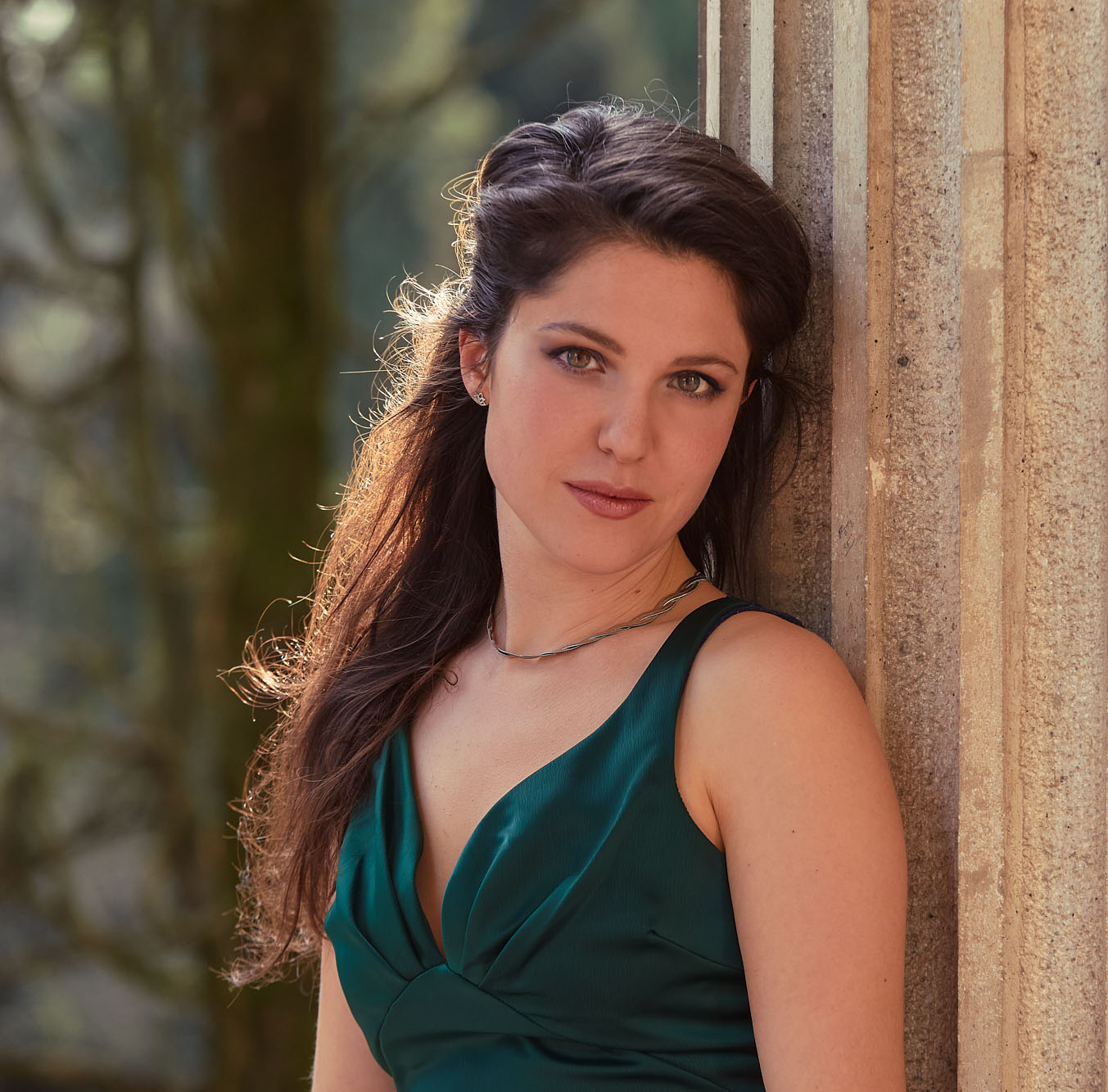FANTASIES
Margherita Santi
MOZART
BEETHOVEN
CHOPIN
SCHUMANN
What happens when musical form breaks free from all constraints? Italian pianist Margherita Santi explores this question in her new album *Fantasies*. With an inquisitive spirit and a refined sensitivity to the mysteries of piano sound, she delves into a genre where creative freedom is most vividly expressed: the fantasy. Mozart’s Fantasie in D minor KV 397, Beethoven’s Sonata „Quasi una Fantasia“, Chopin’s *Fantasy in F minor* Op. 49, and Robert Schumann’s *Carnival Jest from Vienna* Op. 26 all reflect Margherita Santi’s personal relationship with music.
In the emancipation of artistic freedom from conventional structures, fantasy holds a timeless place in music history. Mozart found his way into this format through his love of improvisation, for which he was celebrated as a virtuoso performer on the grand stages of his time. His *Fantasie in D minor* KV 397 from 1782 captures the essence of this musical form, with an introduction that seems to emerge from another dimension and an *Allegretto* movement that breathes the elegance of his era.
Beethoven’s “Quasi una Fantasia“ in C-sharp minor Op. 27 No. 2 demonstrates the revolutionary power of fantasy in all its fullness, in one of the most lyrical compositions of this great musical innovator. The free form offered Beethoven complete freedom to upend previous conventions while still fulfilling the highest artistic ideals. The title „Moonlight Sonata“ was later added by Romantic poet Ludwig Rellstab, who associated the rocking arpeggios in the slow movement with a boat ride under moonlight. Beethoven’s
exploration of new creative spaces already foreshadowed the spirit of Romanticism, where liberation from formal conventions allowed for unlimited subjective expression in the form of a lyrical composer’s voice.
Chopin’s *Fantasy in F minor* Op. 49 brings this development to its culmination. From a hesitant, almost solemn march through discursive melodies to heroic and passionate passages, the emotional range knows no bounds. At its heart is a chorale of extraordinary depth—an intimate prayer that, through a few notes, expresses a universal human experience. Schumann’s *Carnival Jest from Vienna* Op. 26 interprets the fantasy concept more programmatically. Here, a rich musical imagery introduces a kaleidoscopic interplay of characters, inspired by Schumann’s impressions of Vienna and the colorful world of the carnival.
In this sense, Margherita Santi also draws her own conclusion: “I see fantasy as a creative force that has united composers across the centuries, one that each composer had wondrous access to and expressed in their own time. In every composer, we find features that are typical of the era they lived in, others that are characteristic of the composer themselves, and sometimes phrases, ideas, and fragments that seem to transcend time and space, leading into another dimension beyond the everyday.”
Margherita Santi
Born in Verona, Margherita Santi began playing the piano at the age of five and gave her first public concert at the age of six. She graduated with honors from the Conservatory of Verona and recorded her first album featuring works by Chopin and Liszt. She later pursued her studies at the Accademia Santa Cecilia in Rome before continuing her education at the Tchaikovsky Conservatory in Moscow. She earned her Master’s degree in Italy at the Conservatory of Venice, where she completed a thesis on Robert Schumann and presented a recital featuring his three piano sonatas.
As a solo and chamber musician, she has established herself in Europe with performances in Germany, Austria, Spain, Italy, and Switzerland. Her artistic skills have been recognized with numerous awards, including over 40 first prizes in international piano competitions. Margherita was honored by Rai as an „Italian Musical Excellence.“
She is the artistic director of the *Herbst Musicaux* festival in Verona, which she founded to connect classical music with visual arts and literature, and to feature works by female composers. In the 2024-2025 season, her discography will expand with two new albums, while she continues to perform in solo and chamber music concerts across Europe.
